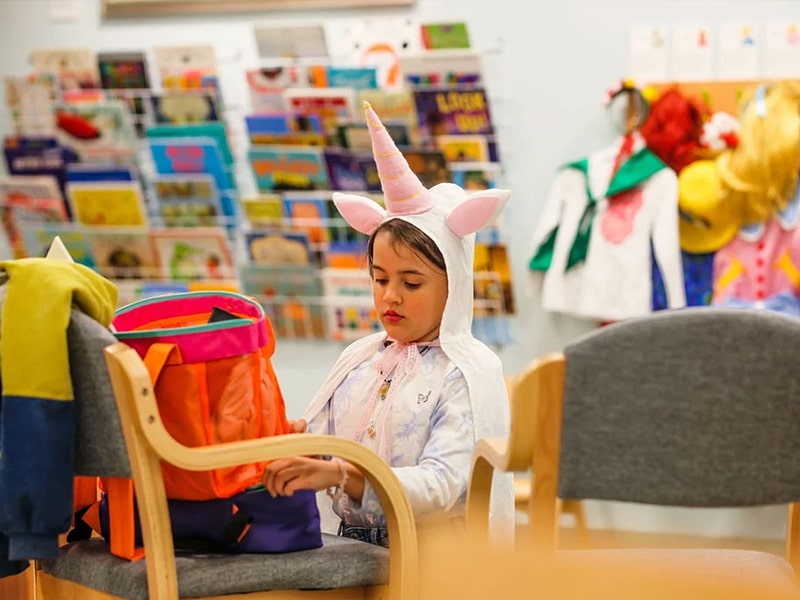Case Study: Royal West of England Academy
Overview
Improving the accessibility of Bristol’s first public art gallery as the Grade II listed building underwent a £4.6m transformation to open up access and provide creative opportunities for all.
The RWA has been showcasing world-class visual art since 1844 and now houses exhibitions that change every 3-4 months as well as a small permanent collection which they take off site to community groups who can’t easily access the space. The RWA needed accessibility training and audits during their refurbishment to support their vision of being a leading centre for visual arts that enriches and nourishes the lives of people from all communities and backgrounds. The result is a welcoming institution with a free family activity room, accessible bathroom facilities and quiet spaces for visitors with sensory impairments with loop systems installed for those with hearing aids.


The Challenge
The challenge for the RWA was creating a space where everyone felt welcomed, valued and engaged. The RWA opened as a public art gallery in 1858 but this first version of the building with its outdoor staircases wasn’t very accessible. Back in the Victorian times it was also quite exclusive and only certain members of society would be able to visit and exhibit in the gallery. Although the exterior steps were removed in the early 1900’s, it has been an ongoing project to make the gallery more accessible.
The significant need to change prompted the largest refurbishment project in over 100 years in 2021. It was in preparation for reopening that the RWA contacted WECIL – they wanted to make everyone feel welcome and contacted us for support with the training of new staff on Disability Equality alongside additional space audits of new accessible areas of the RWA that they were developing. The RWA strongly felt that it was all very well having an accessible building, but that the staff working there also needed to be able to be inclusive and welcoming of everyone. There had also been some concerns raised about the accessibility of the improved space which still wasn’t perfect, including a community group pointing out that the RWA’s fire evacuation strategy wasn’t adequate for Disabled access; this was the trigger to get a Disability expert like WECIL on board to to gather input from users with real lived experience to truly listen to their community’s needs.
Our Approach
To help the RWA improve its accessibility upon reopening, we delivered Disability Equality Training for staff to equip them with the skills to confidently assist Disabled visitors. We also conducted further audits of the space and how it had changed since a previous audit was conducted before the refurbishment. We supported the RWA with facilitating the new family room so that it was wheelchair and pushchair accessible, consulting on things like floor markings, and helped the gallery locate tactile dots for people with impaired vision to navigate the building.
We advised on fire access ramps to make fire evacuation accessible as well as changing places toilets, which are larger than standard accessible toilets with extra features to meet the needs of those who might need assistance from a carer. Our approach helped the RWA see things differently by placing lived experience at the forefront, helping them address remaining concerns from community groups after reopening and make small, actionable adjustments that made a big difference. We were able to be the supportive partner that the RWA could call on at consistent intervals throughout their accessibility journey.


The Outcome
The result is a largely accessible gallery and creative space that is welcoming of a diverse range of people. There has been a big increase in the types of people visiting the RWA, and several of the groups that couldn’t previously easily access the gallery, now are able to visit which is a great marker of success.
There has been a big shift in staff culture and Disability awareness, and the RWA staff commented that they loved the DET training delivered and learnt a lot. WECIL have helped finetune how the gallery’s accessibility facilities work in practice, including Changing Places Toilets which are fully equipped with a changing table, hoist and wet room. The Family Activity Space is a free to access room to engage children, including those with additional needs, in fun and creative activities, and the gallery has a quiet room which was co-created with visitors; it provides a calm environment for those with sensory overload. WECIL’s expertise has helped the RWA develop a benchmark standard of accessibility that they can use for future decisions and our input has also provided valuable insight as the RWA continually strives to create a welcoming and inclusive environment for all to access the creative arts. Accessibility is something that needs to be constantly reviewed as things change, and we look forward to continuing our partnership with such an important Bristol institution.
What They Say
‘The RWA received invaluable input and advice from the WECIL team, who are extremely supportive, non-judgemental and helpful. Having expert disabled advisors in the RWA gallery following a recent capital project helped us learn more about moving around the building and wayfinding. Recently, WECIL advised on our fire evacuation accessibility and floor markings, and with their expertise we were able to implement new procedures and evacuation access ramps quickly. Not only have we been able to improve access in the RWA building, but our staff are now more confident and informed, and better understand visible and hidden disabilities. The Learning Team and our specialist artist-freelancers undertook SEN+D training, and the wider staff team benefitted hugely from Disability Equality training, both from WECIL.’
Helen Jacobs | Head of Learning & Engagement
Photography Alice Hendy

